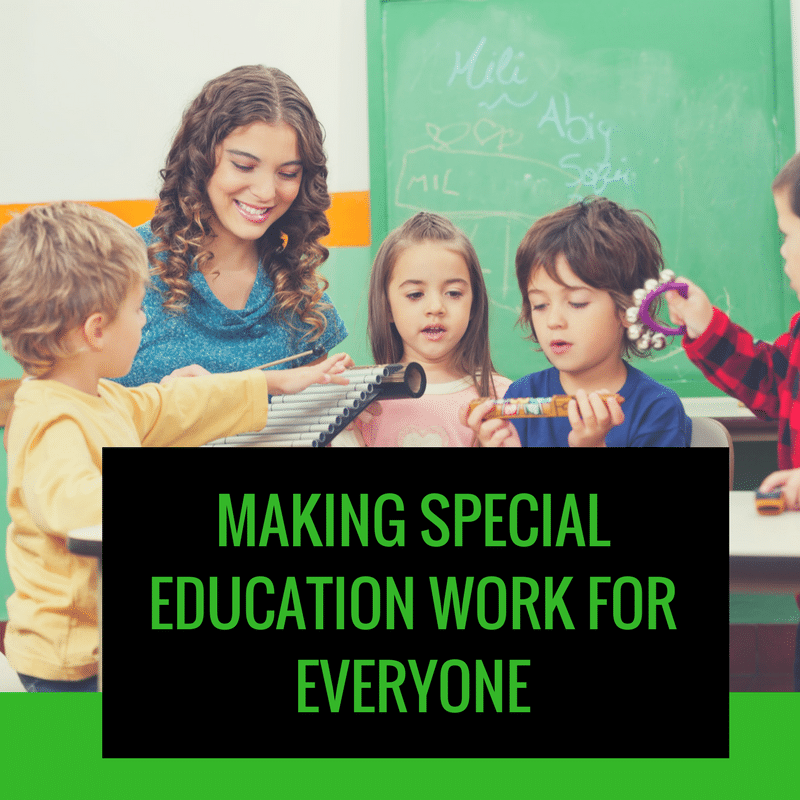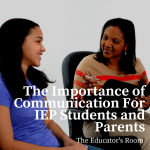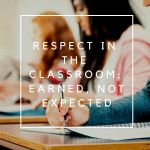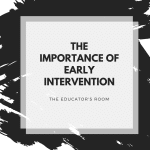I teach in a mild/moderate special education classroom, meaning that all of my kids are on IEPs and have been placed in my room because they meet disability criteria that my school district recognizes. They are able to attend a regular education classroom for all other subjects besides reading, language arts, math and adaptive behavior. Some of my kids have accommodations set up by me within their regular education classrooms for behavior when they are in that particular classroom, some don’t need accommodations. I am part of a team of teachers and administrators who work hard to help these kids reach success throughout their school day.
But what about the kids who are in regular education classrooms who have not been placed yet, but the teachers know there is something going on with them?
What if their behavior is disrupting the learning of the other students in the classroom?
I get asked this question quite a bit from veteran to younger teachers all searching for answers. I have teachers coming to me telling me that something has to be done, yet I legally cannot do anything about these unidentified students because the process of testing and placement takes such a long time.
As a result, teachers are having difficulty teaching their large class sizes when there are several kids roaming around the room or being defiant about procedures or are frustrated with the work and blow up in the middle of class, leaving the rest of the students to suffer. While I wish there was an easy answer to this situation, the solution is far from ideal. I wish I could just bring kids into my room who are having a difficult time and work with them, developing the skills they need in order to manage whatever challenge they are having. However, I can’t. I want to help the teachers, who are struggling under the already horrendous workload they have, be able to go about working with their ‘typical’ students without disruptions.
If you are a regular education teacher and you have a student in a class that you feel needs special services, evaluations or behavior plans to put into place, here are some ideas that work. They don’t work instantly, but they will help make the process of testing and placement run smoother.
DEVELOP A RELATIONSHIP WITH YOUR GRADE LEVEL’S SPECIAL EDUCATION TEACHER. Go to this teacher and let him or her know what is going on. Bring documentation or video (if allowed in your district) and sit down with him or her and explain what is going on in detail. We have to know that this situation isn’t just typical rowdy kid behavior. If you have work samples bring those also. Some districts will not place students who are struggling with academics alone, but there are other resources that can be provided. Once it is agreed upon by your special education teacher that there is definitely an issue, you then have another person who can get through the proper channels to get the help you are needing, or at least provide you with a paraprofessional or some resources and tips to get you through until your student’s number is called for testing by the school psychometrist or psychologist.
DEVELOP RELATIONSHIPS WITH YOUR STUDENT’S FAMILY IF AT ALL POSSIBLE. Yes, we all have those students whose family members who seem to be MIA during the school year, but in my experience, there actually are some families who really care and who do not even realize that there is a problem with their child. I’ve seen this time and again in households where the student is an only child. Homelife is fine because that student doesn’t have anyone else to deal with when he or she is at home and the parents do not have another child to gauge behavior off of. Some parents themselves do not have proper coping mechanisms and will see no problem with what we call ‘poor behavior.’ As teachers, we get the privilege of seeing the big picture whereas some families don’t.
EDUCATE YOURSELF. If you are in a small school district with very limited special services available, you may just have to take matters into your own hands. If you have students who are struggling academically but are fine behaviorally, pick up curriculum from lower levels and differentiate instruction in your own classroom. If you have those difficult students who are roaming the room and demonstrating oppositional behavior, educate yourself on what techniques you can implement on your own. It may take several days to figure it out, but everyone will benefit in the long run.
CREATE A FLEXIBLE CLASSROOM. We all have different learners and we know that theories of teaching don’t always hold true. Be sure that your classroom is set up for those different learners. I have one student who will not sit down. He is very disruptive if he has to sit for any period of time (i.e. the lunchroom). When I realized this, I moved his desk to a part of my classroom where it isn’t disruptive to the other students if he stands and wiggles from the waist down. He completes his work and doesn’t bother anyone else and we all are successful.
SQUEAK. And I’m talking SQUEAK DAILY. If you have to go to your special education teacher, principal, and counselor on a daily basis and remind them about what is going on, do it. If you feel that it isn’t getting taken care of in a timely manner, start contacting people in the administration building. Do whatever you can to get the situation taken care of and don’t be a shrinking violet! Stay on top of the situation and be sure that your student is on the list for evaluation. When you know you’re on the list, keep the conversation going about when the testing is going to happen. Be sure to continually document everything you have done and are doing. The squeaky wheel does get the oil.
As a special education teacher, it drives me insane at how long the process of getting help for our struggling kids (and teachers) can take, but there are definitely ways that you can help push it along and there are resources out there that we can provide to our regular education teachers to help them through the waiting game.






